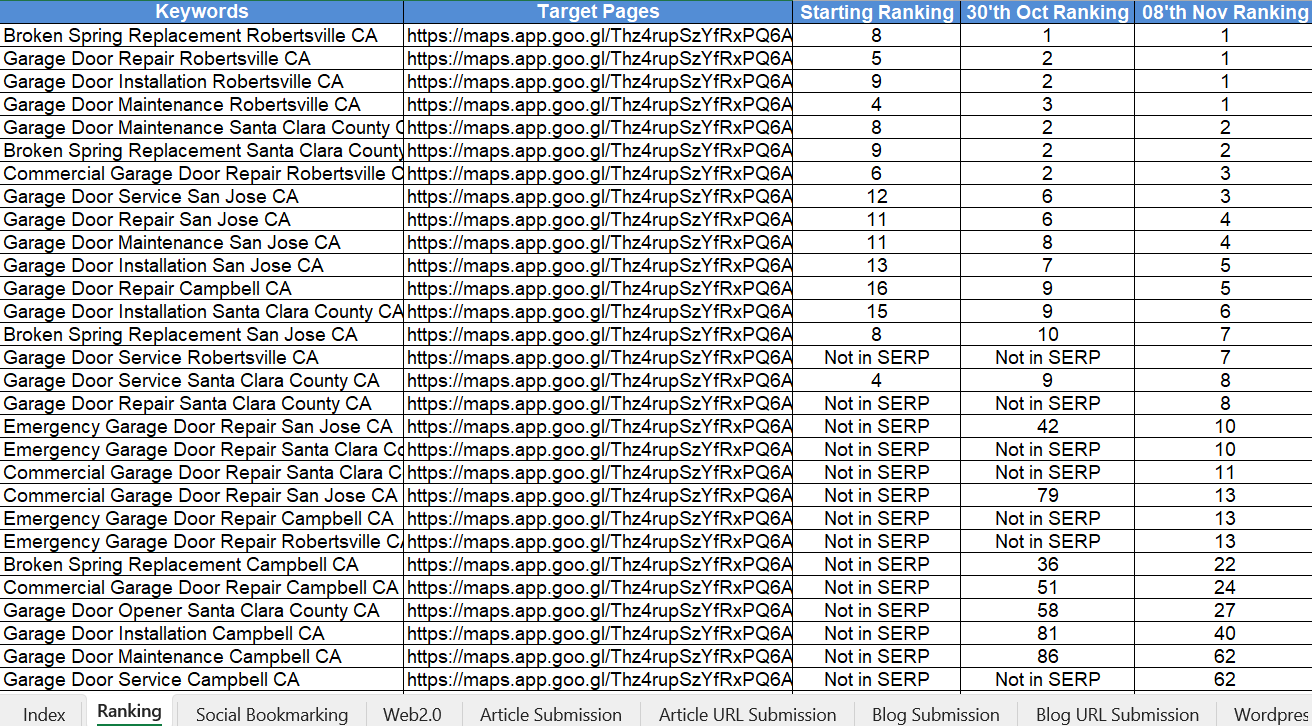The Power of Facebook Marketplace for Small Businesses
In today’s age of digital dominance, where platforms continually evolve to offer better business solutions, Facebook Marketplace has emerged as a compelling tool for small businesses. Initially launched in 2016, Facebook Marketplace started as a peer-to-peer platform for buying and selling items but has grown exponentially over the years.
With over 2.8 billion monthly active users on Facebook, the Marketplace presents a fertile ground for small businesses looking to expand their reach, establish brand presence, and drive sales. So, let’s delve deep into how Facebook Marketplace can be the linchpin for small business success in the digital era.
1. An Expansive User Base
At the outset, it’s crucial to highlight the sheer volume of users on Facebook. A staggering number of daily active users means that any product or service listed on Facebook Marketplace has the potential to be seen by a vast and varied audience.
2. No Initial Setup Costs
One of the significant advantages of Facebook Marketplace for small businesses is the lack of initial setup costs. Unlike traditional e-commerce platforms, which might require a fee or a subscription, Facebook Marketplace is free to start.
3. Hyper-Localized Targeting
The Marketplace operates on a local-first basis. When users access it, they’re shown items and services in their proximity. This is a boon for small businesses, especially those that rely heavily on local clientele.
4. Direct Communication with Customers
Businesses can interact with interested buyers in real-time through Messenger, fostering an immediate and more personal connection. This interaction allows businesses to address queries, negotiate prices, and build a rapport with their customers.
5. Seamless Integration with Business Pages
If you have a Facebook Business Page, the integration with Marketplace is seamless. This offers a dual advantage: businesses can showcase their products, and potential customers can explore the business more deeply, understanding its ethos, customer reviews, and other offerings.
6. Sponsored Listings and Ad Integration
For businesses that want to invest a bit more in their Marketplace strategy, Facebook offers sponsored listings. This means your product or service can appear at the top, increasing visibility.
7. Rich Multimedia Listings
Unlike some classified ad platforms, Facebook Marketplace allows for rich multimedia listings. This means businesses can incorporate high-quality images, videos, and more to make their listings stand out.
8. Insights and Analytics
Being a digital platform, Facebook Marketplace offers actionable insights and analytics. Businesses can understand how their listings are performing, measure engagement levels, and adjust their strategy accordingly.
9. Trust and Security
Facebook has incorporated various measures to ensure the trustworthiness of sellers on the Marketplace. The platform has user ratings and can link back to personal profiles, which adds a layer of credibility and trust.
10. Expanding Beyond Physical Products
While initially intended for the sale of physical items, Facebook Marketplace has expanded. Now, services, rentals, and even job listings can be posted, making it a versatile platform for varied small business needs.
11. Mobile-First Approach
In an age where mobile e-commerce is rising rapidly, Facebook Marketplace is optimized for mobile experiences. This mobile-first approach ensures that listings look good on mobile devices, catering to a large segment of users who access Facebook via smartphones.
12. Cross-Promotion Opportunities
Businesses on Facebook Marketplace can leverage the power of cross-promotion. By sharing their Marketplace listings on their main Facebook feed, Stories, or even on Instagram, they can amplify their reach.
13. Reduction of Friction in Buyer’s Journey
One key benefit is the reduction of friction in the buyer’s journey. With integrated Facebook Pay in some regions, a potential buyer can go from discovering a product to purchasing it without ever leaving the Facebook ecosystem.
14. Community and Groups
Many communities and groups on Facebook revolve around the buying and selling of specific items. By being active in these communities, small businesses can further enhance their Marketplace strategy.
15. Evolving Features
Facebook is continually rolling out new features to enhance the Marketplace experience for both buyers and sellers. Staying updated with these changes can help businesses gain a competitive edge.
Conclusion
In the vast digital ocean, where numerous platforms vie for the attention of businesses, Facebook Marketplace stands out, especially for small businesses. It’s not just about listing a product or service; it’s about building a community, fostering trust, and creating a dynamic digital storefront that can adapt to the changing needs of consumers.
While it’s still essential to maintain a multi-channel approach to digital sales and marketing, Facebook Marketplace should undoubtedly be a pillar of this strategy. The platform’s user-friendliness, coupled with the massive user base of Facebook, offers small businesses a unique blend of reach and engagement.
For small businesses on the fence about diving into the Facebook Marketplace, it’s worth considering not just the immediate sales potential but also the long-term brand-building opportunities. In a digital age defined by connectivity and community, platforms that foster these values, like Facebook Marketplace, are poised to lead the way.
Diving Deeper into Facebook Marketplace’s Potential for Small Businesses
In a digital world teeming with e-commerce platforms, the Facebook Marketplace presents itself as an undiscovered treasure for many small businesses. While the surface benefits of the platform—like its vast user base and the zero cost of entry—are already impressive, the deeper intricacies of how it can revolutionize small business operations are equally noteworthy.
16. Building Authentic Relationships
Given the personalized nature of Facebook, when a business interacts with a customer on Marketplace, it’s not just a transaction; it’s the start of a relationship. Users can see the faces behind the businesses, understand their stories, and often feel more connected to them than they might with larger, impersonal corporations.
17. Seasonal and Trend-Based Promotions
Facebook Marketplace is agile. Small businesses can quickly pivot their listings based on seasons, festivals, or current trends. For instance, if there’s a sudden surge in demand for home workout equipment or DIY kits, businesses can promptly highlight these in their listings, ensuring they’re always in tune with market demand.
18. Leveraging User Behaviour Data
Facebook is, at its core, a data-driven platform. The Marketplace benefits from this, offering businesses insights into user behavior. This data can inform many strategic decisions, from product pricing to promotional strategies, helping small businesses stay a step ahead.
19. Enhanced Visibility through Marketplace Algorithms
Just like how Facebook’s News Feed operates on algorithms, so does the Marketplace. By ensuring high-quality listings, prompt responses to queries, and positive user feedback, businesses can optimize their visibility on the platform.
20. Integration with Third-Party E-commerce Platforms
For businesses that operate on other e-commerce platforms, many third-party tools facilitate seamless integration with Facebook Marketplace. This means products listed on other platforms can be automatically listed on the Marketplace, making management more efficient.
21. The Feedback Loop
Facebook Marketplace allows users to rate and review sellers. For small businesses, this is a goldmine of feedback. Positive reviews can significantly enhance credibility, while constructive feedback can offer insights into areas of improvement.
22. An Avenue for Unique Offerings
The Marketplace isn’t just for conventional products. It’s an avenue where small businesses can showcase unique, handcrafted, or customized offerings. These niche products often stand out and can carve a loyal customer base on the platform.
23. The Power of Social Proof
In today’s digital buying landscape, social proof is pivotal. When users see their friends or family purchasing or reviewing a product on Facebook Marketplace, it inherently boosts the product’s credibility. This kind of word-of-mouth marketing, amplified by the platform, can be invaluable for small businesses.
24. Simplified Logistics
Facebook Marketplace, in conjunction with partners, has started to offer simplified logistics solutions. This means that small businesses, even those without a vast logistical apparatus, can easily manage deliveries, returns, and other operational aspects.
25. Educational Resources and Community Support
Facebook continually invests in educating its sellers. There are numerous resources, tutorials, and community forums where businesses can learn best practices, share experiences, and troubleshoot challenges. This ecosystem of support is especially beneficial for small businesses venturing into the digital selling space for the first time.
26. Opportunities for Collaborative Promotions
Businesses on Facebook Marketplace can collaborate. Think of a local bakery teaming up with a coffee shop to offer combo deals. These collaborations, often facilitated by the platform’s community nature, can help businesses expand their reach and tap into complementary audiences.
27. Crisis-Proofing with Digital
Recent global events have highlighted the importance of having a robust digital presence. Physical storefronts, while essential, are vulnerable to unforeseen disruptions. Facebook Marketplace offers small businesses a stable, crisis-proof avenue to continue operations and maintain customer connections.
28. The “Shop Local” Movement
There’s a growing global trend of supporting local businesses. Facebook Marketplace, with its local-first approach, aligns perfectly with this sentiment. Small businesses can position themselves as local champions, resonating with conscientious consumers and fostering community growth.
29. Dynamic Pricing and Offers
Unlike static e-commerce listings, Marketplace listings can be dynamic. Small businesses can experiment with pricing, offer limited-time discounts, or bundle products, gauging real-time user response and adjusting strategies instantaneously.
30. The Evolving E-commerce Landscape and Marketplace
The world of e-commerce is continually evolving, and Facebook is at the forefront of this evolution. The Marketplace is regularly updated with new features, tools, and capabilities. By being active on the platform, small businesses ensure they’re in sync with the latest in e-commerce innovation.
Conclusion
Facebook Marketplace is more than just an online platform for buying and selling. It’s a vibrant, dynamic, and community-driven ecosystem that offers a plethora of opportunities for small businesses to thrive. By leveraging its many facets—from data analytics to community networking—small businesses can not only enhance their digital presence but also foster meaningful connections, drive sales, and carve a unique space in the digital marketplace.
In a world where the digital realm is becoming increasingly crowded, platforms like Facebook Marketplace, which offer both depth and breadth of engagement, are invaluable. It’s not just about selling a product; it’s about weaving a narrative, building trust, and fostering community. And for small businesses, this can be the cornerstone of sustainable, long-term success.
The Power of Facebook Marketplace for Small Businesses Read More »




